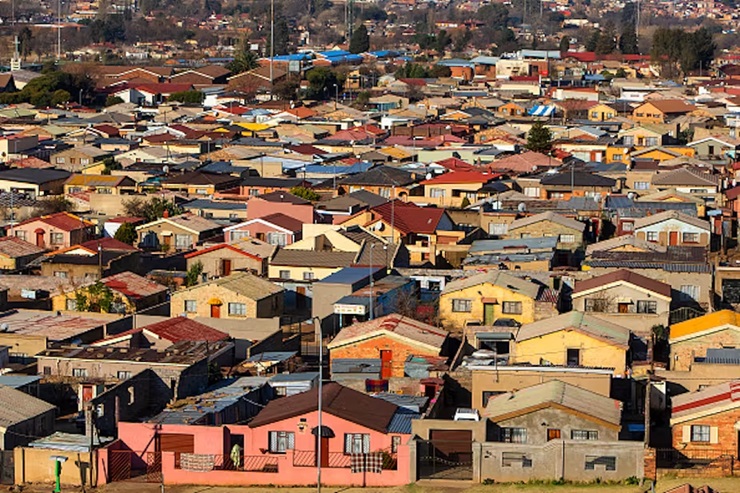Calls to increase Ghana’s retirement age from 60 to 65 years are gaining traction in policy circles, often framed as a necessary response to increasing longevity and pension sustainability. But this argument, when tested against empirical data, quickly unravels. Proponents of this shift are either poorly advised or fundamentally misread the realities of health and ageing in Ghana. Pushing such a policy in a country where most people won’t live long enough to enjoy retirement is not just poor governance—it is an affront to public dignity.
The Longevity Mirage
Ghana’s life expectancy at birth is currently 64.5 years, according to World Bank data (2023). That is
well below the global average of 73.4 years and significantly lower than the OECD average of over 80 years. More damning, however, is that only 3.62% of Ghanaians are aged 65 or older. Even more sobering is this: among adults who make it to 60 years, 71% are dead by their 65th birthday. This data paints a bleak reality that raising the retirement age to 65 would effectively mean asking most Ghanaians to work until death.
Unlike countries in the Global North, where such policy shifts are sometimes backed by robust geriatric care, extended healthy lifespans, and comprehensive social support systems, Ghana does not have the public health infrastructure to justify a general extension of working life. The fact is: longevity in Ghana does not equate to healthy ageing.
Quality of Life Matters Too
Any discussion of retirement must go beyond life expectancy and incorporate Quality Adjusted Life Years (QALYs)—a measure that factors in both the quality and quantity of life lived. For many Ghanaians, the last 6.5 years of life are marked by declining health, reduced mobility, and increased financial and emotional stress. Extending the retirement age into this phase is not only inhumane, but it actively compounds social inequities.
Workplace stress, insufficient access to geriatric healthcare, poor nutrition, and the lack of recreational or rehabilitation opportunities post-retirement are real and immediate issues in Ghana. Instead of increasing the retirement age, policy attention should shift towards improving the post-retirement quality of life, expanding social protection schemes, and enhancing preventive healthcare across the life course.
A Global South Perspective: What Others Know That We Ignore
Ghana is not alone in facing demographic pressures, but countries across the Global South offer cautionary tales. In Nigeria, where life expectancy is even lower (around 55 years), discussions on raising the retirement age are largely restricted to elite professions, not general policy. Similarly, in countries like Kenya and Uganda, while civil service reforms have occasionally adjusted retirement ages, these are carefully calibrated against mortality data and sector-specific needs.
Contrast this with Ghana’s current proposition: a blanket increase to 65 years, regardless of profession, health status, or social context. That is policy laziness, not strategic reform.
Even within Ghana, we already have differentiated retirement ages for specific roles. Supreme Court Justices retire at 70, and professors may continue beyond 60 through post-retirement contracts. These are exceptions, not templates. These roles are less physically demanding, offer higher incomes, better healthcare access, and far more control over work schedules. Applying the same standard to farmers, market women, factory workers, and public servants is an injustice rooted in elite detachment from everyday Ghanaian life.
Who Benefits? Follow the Money
If this proposed shift is not in the public interest, then cui bono—who benefits?
Primarily, pension schemes like SSNIT, whose liabilities shrink when retirement is delayed, and mortality remains high. By keeping people in the workforce longer, fewer qualify for long-term pensions, easing financial pressure on schemes that have historically struggled with actuarial imbalances. The elite class, who enjoy better working conditions and longer lifespans, also benefit, ensuring their economic dominance continues while the rest of the population toils toward an early grave.
This is not reform; it is the monetization of mortality.
The Ethical and Governance Imperative
Good governance must be rooted in the lived realities of the people. Policies that extend working years without improving health outcomes, income security, or retirement quality are neither progressive nor defensible. They reflect a dangerous conflation of longevity myths with elite economic priorities.
Any serious public policy must ask: Do we want our citizens to work until death, or to retire with dignity? The answer should be obvious.
Instead of raising the retirement age, Ghana should focus on:
• Improving access to preventive healthcare to extend healthy life expectancy.
• Enhancing pension coverage and equity to ensure retirement is not a trapdoor to poverty.
• Creating flexible retirement pathways that reflect sectoral realities—not elite fantasies.
Raising the retirement age in Ghana is not a forward-looking policy. It is a retreat into callous arithmetic—one that treats people not as citizens, but as actuarial data points. Let’s reject it before it becomes policy. Let’s retire the idea, not the people.
Working Longer: A Partial Truth with Conditional Merits
To be clear, some international studies, mostly in high-income settings, suggest a correlation between working longer and increased longevity. The logic is straightforward: continued engagement in structured work can promote mental stimulation, social interaction, and a sense of purpose. But these outcomes depend significantly on job type, working conditions, and access to healthcare.
In Ghana, this correlation cannot be assumed to hold across all professions. The benefits of working longer accrue primarily to those in low, stress, high, autonomy, and well-compensated roles—typically found in academia, the judiciary, and parts of the civil service. For those in physically demanding, hazardous, or poorly remunerated jobs, prolonged working years often accelerate health decline, not prevent it.
What Ghana urgently needs is granular actuarial data and mortality statistics disaggregated by occupation, geography, and socio-economic status. This evidence would allow policymakers to responsibly identify professional paths where increasing the working life could yield a better balance between productivity and well-being. In such cases, a targeted extension of retirement age might be economically prudent and socially justifiable. But without this foundation, blanket adjustments remain speculative and unjust.
Retirement Anxiety and the Age-Tampering Phenomenon
Another consequence of Ghana’s flawed retirement framework is the chronic anxiety it generates among workers, especially in the informal and low-income sectors. The fear of financial insecurity post-retirement has historically led many to falsify their age to prolong their working years. Age-tampering, while unlawful, is symptomatic of a system that does not inspire confidence in retirement planning or post-career support.
This psychological stress, compounded by economic precarity and lack of retirement literacy, should be treated as a policy red flag. A humane and responsive system should reduce anxiety, not institutionalize it.
The Demographic Context: Ghana’s Ageing Is Still a Distant Prospect
Ghana’s population remains overwhelmingly youthful, with a median age of just 21.5 years and over 57% of the population under 25, according to the 2021 Population and Housing Census. The country is not facing the kind of demographic inversion that haunts ageing societies like Japan or Germany.
Any reform discourse must therefore be anchored in our demographic present, not borrowed crises from other continents. The argument for extending working life based on long-term pension sustainability fails when the vast majority of Ghanaians are still decades away from retirement, and when many who retire never live long enough to benefit.
Sources:
• Ghana Statistical Service (2021). Population and Housing Census.
• World Bank Data (2023). Life Expectancy at Birth.
• WHO Global Health Estimates (2022).
• SSNIT Annual Report (2022).
• OECD (2020). Working Better with Age.
• HelpAge International (2021). Global AgeWatch Insights.

Kwame Sarpong Asiedu (Ph.D.) is a Democracy and Development Fellow of the Ghana Center for Democratic Development (CDD-Ghana).
*Featured image credit: Ceylon Independent
















